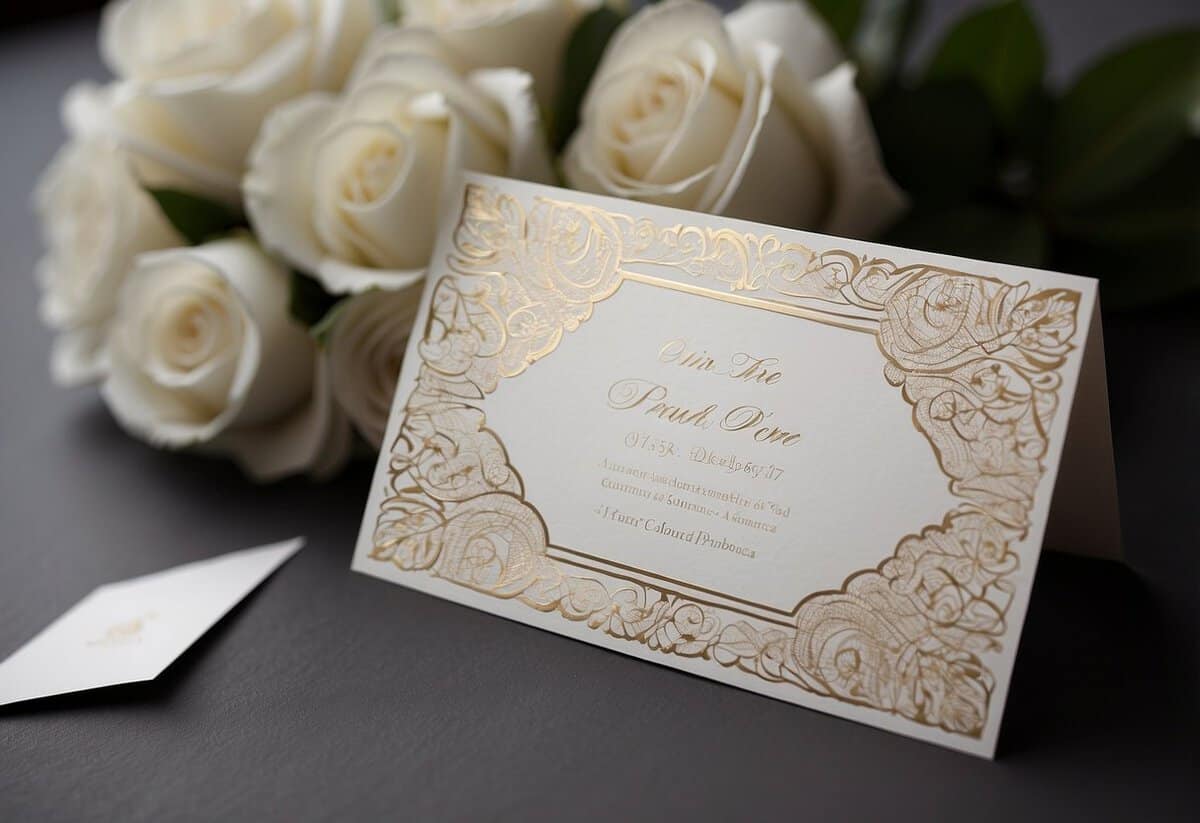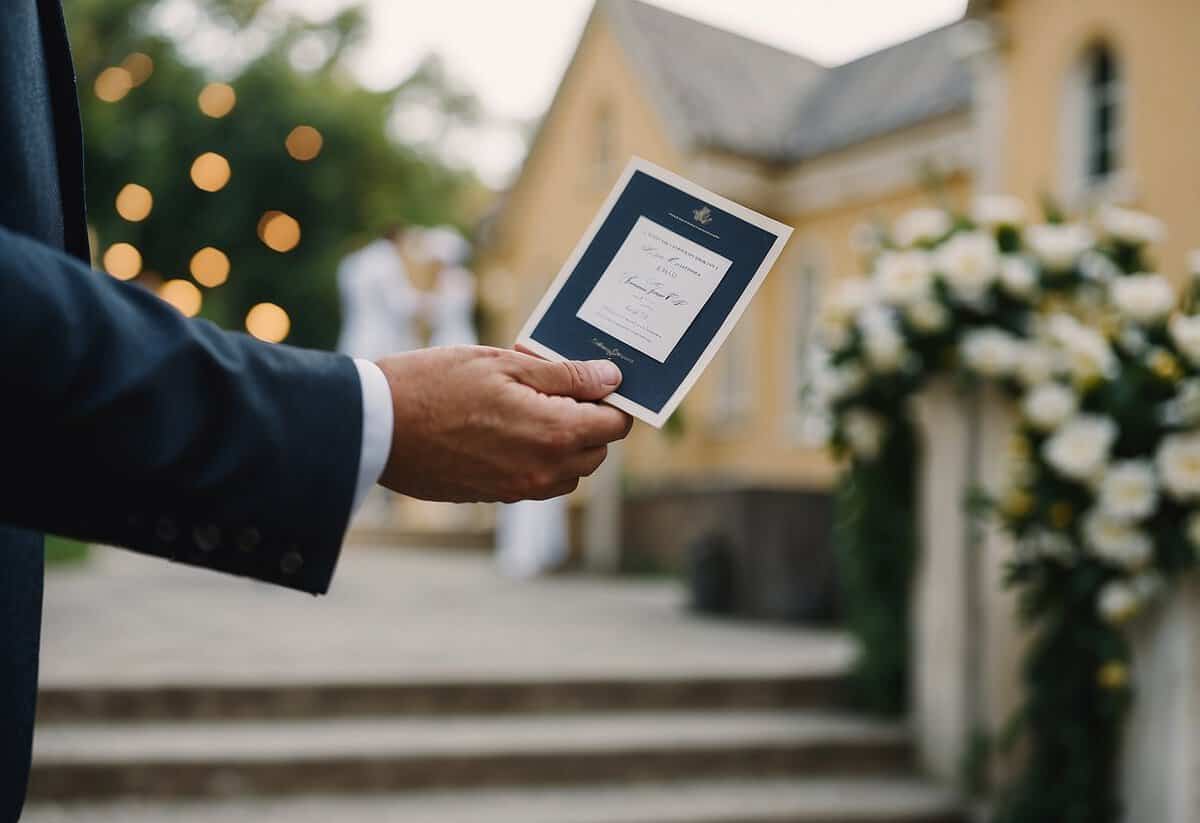Is It OK to Bring a Friend as a Plus One to a Wedding? Etiquette Tips
Attending a wedding is always a special occasion, and getting a plus-one can add to the excitement. Yes, it’s generally okay to bring a friend as a plus-one to a wedding, but only if the invitation allows it. Make sure to check the invitation carefully and respect the couple’s wishes. Etiquette is key here; you wouldn’t want to put the couple in an uncomfortable position.

When deciding who to bring, think about the dynamics at the wedding. An outgoing friend who gets along well with new people can be a great choice. On the other hand, consider if your plus-one might detract from the event or steal the spotlight. That’s something to avoid at all costs.
Introductions are important too. If the couple doesn’t already know your friend, make sure you introduce them at some point during the event. This shows respect and keeps everything pleasant for everyone involved. For more tips on the etiquette of bringing a guest, check out this guide on Bustle.
Understanding Wedding Plus-One Etiquette

When you receive a wedding invitation, knowing how to navigate plus-one etiquette is important. Always consider the wishes of the couple and the structure of their guest list.
Basics of Plus-One Invitations
Plus-one invitations are used to include an additional guest when attending a wedding. Couples often send these to unmarried friends or family who might prefer bringing a companion.
To keep your relationship with the couple smooth, it’s good to follow the established rules around invitation etiquette. Typically, married couples, engaged couples, and those in serious relationships are granted a plus-one. Invitations sometimes come with “no ring, no bring,” meaning only those with a significant other can bring a guest.
Deciphering the Invitation
When you get a wedding invitation, it’s crucial to understand if you are allowed to bring a plus-one. The invitation might explicitly state if a guest is included, often reading “and guest.” If there is no mention of another guest, assume you’re invited alone unless you clarify with the couple.
RSVP cards can also provide hints. If a line for an additional guest is missing, you’re likely not permitted a plus-one. Pay attention to how the envelope is addressed. Formal wording helps avoid assumptions and keeps the invite clear.
Know the Wedding Party
Understanding the wedding party can give more context to your invitation. If the couple has opted for an intimate ceremony with close family and friends, the guest list might not allow for many plus-ones. The immediate family of the bride and groom will usually take precedence.
This helps manage venue space and costs, ensuring the couple can celebrate with their closest circle. Always respect their decision and if in doubt, communicate directly with the couple to avoid misunderstandings.
When it comes to plus-one etiquette, your courtesy and consideration will be appreciated.
Navigating Guest Dynamics

When deciding if you can bring a friend as a plus one to a wedding, consider the relationships and connections involved. Different relationship statuses and family settings may influence whether it’s appropriate to invite someone.
Relationship Status Considerations
Think about your current relationship status. Plus-ones are often reserved for guests with long-term partners. If you are married, engaged, or living together, it makes sense to include your partner. For those casually dating or single, it might be best to check with the couple getting married.
For single guests, it’s often courteous to attend alone unless explicitly offered a plus-one. This helps the couple manage the guest list and ensures they can invite close family and friends.
Family and Friends Involvement
Consider the wedding guests and your connection to them. If your family members or close friends are attending, it may be more enjoyable to go alone, as you’ll already have familiar faces to interact with.
For those who won’t know many people, bringing a friend can make the event more comfortable. It’s important to respect the couple’s wishes if they specify no plus-ones, ensuring a smooth experience for everyone involved in the wedding ceremony.
Budgeting for Extra Guests

Thinking about your wedding budget is essential when deciding whether to allow friends to bring a plus-one. It’s important to weigh the costs and consider the overall impact on your planning.
Couple’s Budget Concerns
When planning your wedding, the budget is a top concern. Each extra guest can add to the total cost significantly. For example, if the average cost per plate is $100, allowing 10 extra guests could mean an additional $1,000. This can really add up and might affect other parts of your wedding, like decor or entertainment.
You might also want to think about the size of the venue. If space is limited, adding more people can cause overcrowding, making the event less enjoyable for everyone. This could lead to the need for a larger venue, which often comes with higher costs.
When making decisions about plus-ones, some couples choose to invite only those with serious partners. This could help manage costs and keep the guest list within the desired limit. Whatever you decide, keeping an eye on the budget can help ensure your wedding remains both enjoyable and affordable.
By being mindful of these factors, you can make informed decisions that align with your wedding plans and budget.
Making the Plus-One Decision

Deciding whether to bring a plus-one to a wedding depends on factors like the invitation details and your relationship status. Knowing when it’s appropriate to bring a guest and how to respectfully decline can make the process smoother.
When to Bring a Plus-One
Your invitation will indicate whether you can bring a guest. Invitations often specify if a plus-one is included, so check for names or terms like “and guest.” If you’re uncertain, contact the couple to clarify. It’s essential to respect their decision to limit or extend plus-ones based on their space and budget.
Consider your relationship with your guest. If you have a significant other or live-in partner, it’s usually okay to bring them. Couples in serious relationships are often expected to attend together. Single and comfortable alone? You may choose to go solo, which can also help the hosts manage their numbers.
Requesting a plus-one without being granted one can be awkward. If you must, do so politely and be prepared to accept a no gracefully. Remember, wedding planning is challenging, and respecting their choices shows appreciation for their efforts.
How to Politely Decline
If you’re given a plus-one but prefer attending alone, you should politely decline the option. Communicate this clearly in your RSVP to avoid confusion. A simple note like, “Thank you for the plus-one invitation, but I will be attending alone,” suffices and shows respect for the hosts’ planning.
Deciding not to bring a guest can make you more comfortable and enable you to engage more with the couple and other guests. It shows a level of courteousness as it can also help the couple with seating arrangements and budget considerations.
By making these decisions thoughtfully, you show appreciation for the couple’s invitations and respect the etiquette of being a considerate guest.
Gift-Giving and Appreciation

When bringing a friend as a plus-one to a wedding, it’s essential to consider the couple’s expectations and show appreciation through an appropriate gift. This reflects your gratitude and respects the couple’s wedding budget and guest list.
Selecting an Appropriate Gift
Selecting the right gift is key. If you’re bringing a plus-one, your gift should reflect that you’re attending as a pair. Consider the couple’s RSVP card and note if they have a wedding registry. This makes selecting a gift easier and ensures it fits within the couple’s desired items.
Avoid giving a gift that’s too personal or extravagant, which could make the couple uncomfortable. A thoughtful and meaningful gift showing your appreciation is ideal. This could include items like kitchenware, home decor, or a contribution to their honeymoon fund.
Expressing your appreciation through your gift demonstrates good etiquette and acknowledges the honor of being invited. Remember, the focus should be on celebrating the couple’s special day and not on making an impression.




